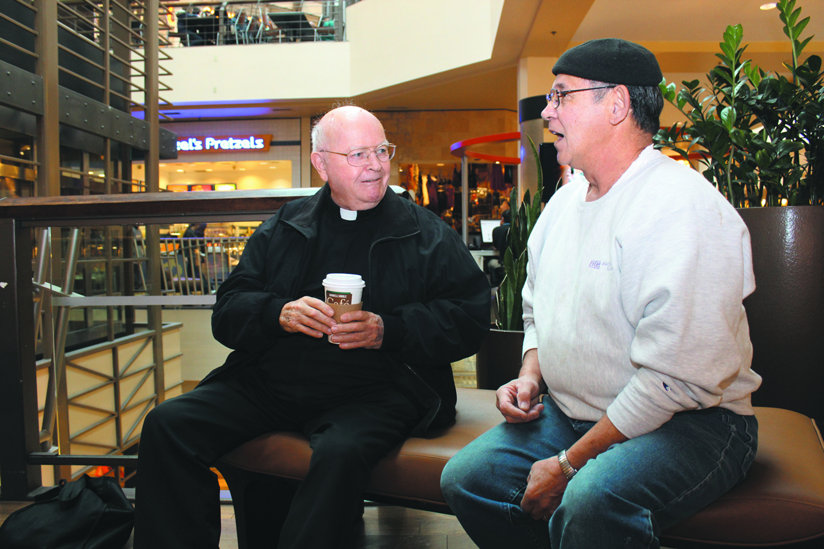
-
HOME
-
WHAT IS STANDOur Mission Our Values Our Help Contact
-
WHAT WE FIGHT FORReligious Freedom Religious Literacy Equality & Human Rights Inclusion & Respect Free Speech Responsible Journalism Corporate Accountability
-
RESOURCESExpert Studies Landmark Decisions White Papers FAQs David Miscavige Religious Freedom Resource Center Freedom of Religion & Human Rights Topic Index Priest-Penitent Privilege Islamophobia
-
HATE MONITORBiased Media Propagandists Hatemongers False Experts Hate Monitor Blog
-
NEWSROOMNews Media Watch Videos Blog
-
TAKE ACTIONCombat Hate & Discrimination Champion Freedom of Religion Demand Accountability
Does the Decline of Religion Foretell a Rise in Mental Illness?
Has the decline in church attendance resulted in an increase in mental health troubles?
In the 1950s and 60s church attendance was a regular part of life.
When I was a kid my whole family was rounded up, dressed in our Sunday best, kept as clean as we could, and taken off to church.
Everyone we knew went to a church of some kind. Everyone invited you to Sunday school or one of the many religious study groups that popped up in people’s homes.
Churches were an integral part of our neighborhood.
Church members were also the main caregivers for those who had no one else.

When someone was diagnosed with a dread disease, the church members were there with help, tea and sandwiches.
In the last 50 odd years, church attendance has gone way down and there has been nothing to take its place with these vital but unsung services.
When someone died, church members were there with casseroles, comfort and again, sandwiches.
When someone was depressed, they were there with a warm shoulder, a ready ear and yes, with the ubiquitous sandwiches.
In the last 50 odd years, church attendance has gone way down and there has been nothing to take its place with these vital but unsung services.
Neighbors do not know neighbors any more except for a brief good morning as they rush off to day care and work.
Young parents who live far from other family members many times feel isolated, overwhelmed and alone.
And young teens coming of age are now being morally confused by the mixed and confusing messages being thrown at them daily with no one to talk to about what is right and what is wrong.
People do not feel they belong.
No wonder depression and anxiety are on the rise.
Several years ago my husband and I purchased a house in a hilltop village in Calabria, Italy.

Every year I go there and immerse myself in the culture and guess what? No isolation, no loneliness, no lack of support. Everyone belongs.
In the center of our village right in the middle of the piazza is a huge stone church dating back to the 1300s.
Every morning and evening the church bells call the villagers to the church for service.
The message is a holy message, one of loving thy neighbor, helping those who need it, and keeping yourself clean ethically so that you can be happy.
Let’s face the facts, churches are not just for worship. They are reminders of our spiritual selves. They are reminders that no one can do this life alone.
This message is taught in the church and reinforced by the people in their examples. A young person can look at someone who attends church, lives the message and can see for himself that that person lives a happy and fulfilling life.
The village is calm and peaceful, filled with love and acceptance.
Let’s face the facts, churches are not just for worship. They are reminders of our spiritual selves. They are reminders that no one can do this life alone.
No one.
They set out and reinforce our moral codes so no one is confused and everyone has a path to happiness.
When the sun starts setting over the Mediterranean, we take the passegiatta or evening walk. Everyone drops what they are doing and walks through the village catching up with their neighbors and friends, kissing babies and reconnecting.
I see the widowed ladies in black walking arm-in-arm with each other, chatting and visiting.
I see the men at the tables in the piazza playing cards.
I see all my neighbors with each other all in front of the church that holds the village and villagers together like a loving sun surrounded by her orbiting planets.

So is it possible that these mental health emergencies are simply the lack of connection? A lack of belonging and confusion about how to go about creating a happy life?
Falling away from church, moral codes and belonging has created depression and anxiety. It has created a sense that one is alone no matter how many strangers surround them.
The solution to the rapid increase in mental health problems is the rise and acceptance of churches, synagogues and mosques, and their messages of unity, tolerance, love and compassion once again.









